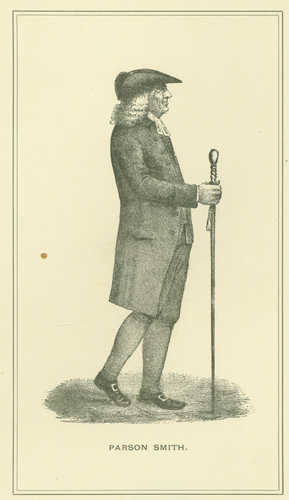Keywords: physician
Item 34098
MacBride house, Lubec, ca. 1896
Contributed by: Lubec Historical Society Date: circa 1896 Location: Lubec Media: Photographic print
Item 99373
Handbill for clairvoyant physician, North Turner, 1861
Contributed by: Leeds Historical Society Date: circa 1861 Location: Turner Media: Printers ink on paper
Item 88190
Black property, E. Side Island Avenue, Peaks Island, Portland, 1924
Owner in 1924: Hulda M. Black Use: Hospital
Item 110038
Workman's Cottage for Dr. Henry H. Brock, ca. 1905
Contributed by: Maine Historical Society Date: circa 1905 Client: H.H Brock Architect: Frederick A. Tompson
Item 110037
Henry H. Brock building, Alfred, ca. 1905
Contributed by: Maine Historical Society Date: circa 1905 Location: Alfred Client: Dr. Brock Architect: Frederick A. Tompson
Exhibit
One Hundred Years of Caring -- EMMC
In 1892 five physicians -- William H. Simmons, William C. Mason, Walter H. Hunt, Everett T. Nealey, and William E. Baxter -- realized the need for a hospital in the city of Bangor had become urgent and they set about providing one.
Exhibit
Surgeon General Alonzo Garcelon
Alonzo Garcelon of Lewiston was a physician, politician, businessman, and civic leader when he became Maine's surgeon general during the Civil War, responsible for ensuring regiments had surgeons, for setting up a regimental hospital in Portland, and generally concerned with the well-being of Maine soldiers.
Site Page
View collections, facts, and contact information for this Contributing Partner.
Site Page
Historic Hallowell - Dr. Benjamin Page
"During the Plague of 1812, his superb knowledge and skill saved many lives. He is credited with being the first physician to inoculate human with the…"
Story
Reverend Thomas Smith of First Parish Portland
by Kristina Minister, Ph.D.
Pastor, Physician, Real Estate Speculator, and Agent for Wabanaki Genocide
Story
Cantor Beth & Dr David Strassler: personal insights on life
by Biddeford Cultural & Heritage Center
The journey of a couple devoted to each other, their family, their community and their religion
Lesson Plan
Primary Sources: Healthcare History in Maine
Grade Level: 6-8, 9-12
Content Area: Social Studies
This lesson plan will give students the opportunity to read and analyze letters, literature, and other primary documents and articles of material culture from the MHS collections relating to how people in Maine have given and received healthcare throughout history. Students will discuss the giving and receiving of medicines and treatments from the 18th-21st centuries, the evolving role of hospitals since the 19th century, and how the nursing profession has changed since the Civil War. Students will also look at how people and healthcare facilities in Maine have addressed epidemics in the past, such as influenza and tuberculosis, and what we can learn today from studying the history of healthcare and medicine.

















